
Radiant heating is incredibly versatile and can be used in many places inside – or outside – a home.
For those who live in areas prone to winter snow and ice, radiant heating can provide quick, efficient snow removal from outdoor surfaces like roofs, gutters, and driveways.
Another way to use radiant heat is on walkways and sidewalks to keep surfaces clear of ice.
How much does a heated walkway cost, exactly?
We’ll let you know below.
Types of Heated Walkways
Radiant heating can be electric or water-based, and choosing between the two can affect how much a heated walkway costs.
Electric systems consist of loose electrical cables laid into a pattern or embedded into mats. The system is connected to the electrical panel and turns on and off with a controller. In terms of cost, they are less expensive to install but have higher operating costs (more on this later).
Water-based systems, also called hydronic systems, use thin plumbing pipes or tubing, like PEX tubes, which are connected to a boiler that heats a mixture of water and antifreeze by circulating it through the system to heat and melt snow and ice.
Compared to electric systems, hydronic systems have a more complex, time-consuming, and expensive installation process, but they can be cheaper to operate.
Material Cost of Heated Walkways
The cost of a heated walkway will also vary depending on the materials. Electric systems offer more variety, with the availability of cables and mats, while hydronic systems only offer tubing.
Electric Snow-Melting Cables: Cable systems go for about $5–$14 per square foot depending on size and spacing. These cables typically have an output of up to 50 watts per square foot, depending on the spacing of the cables with voltages of 240V or 480V.
Electric Snow-Melting Mats: These mats are mesh rolls with embedded heating cables, for quicker and easier installation. It also means they cost more than installing the cables alone, costing anywhere from $10–$20 per square foot. Mats come in 240V and 480V and operate at up to 50W/sqft.
Hydronic Tubing: Hydronic heated driveways do not offer options like electric systems. Expect to pay about $14–$30/sqft for hydronic systems.
Request an estimate for your heated walkway project today.
Additional Heated Sidewalk Cost Factors
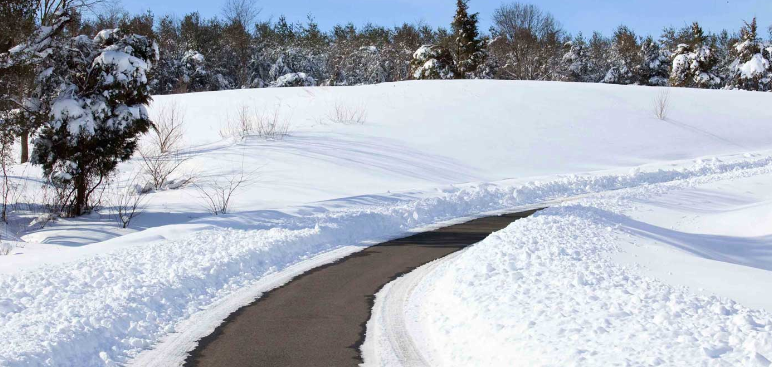
There are many other factors that can impact the cost of heated driveways beyond the cost of materials. For example:
Size and Design of Walkway
The length and shape of your walkway affects the heated walkway cost. Longer and oddly shaped driveways will cost more than short, straight ones because they require more labor and materials.
Climate
In colder climates, the heated walkway will have to run more frequently, which can increase operating costs. Keep in mind: installing a heated walkway in the winter is also more expensive and cannot happen if the temperature is below 32 degrees fahrenheit.
Automatic vs. Manual Controls
When installing either type of system, you can choose automatic or manual controls. Automatic controls will cost more, but will ensure that the system always turns on at the right time.
Sidewalk Materials
Sidewalk covering materials also affect a heated sidewalk’s cost. Different materials have different costs. Asphalt is the cheapest option, while pavers are the most expensive, and concrete offers a more moderate price.
Utility Costs
Utilities, especially electricity, vary in price depending on where you live, and no matter what, this will have a significant impact on operating costs.
Installation Costs
Installation labor cost varies by location, company, and experience level. A more experienced contractor will cost more, but will likely be able to get the job done quicker and without issue.
Heated Walkway Installation Costs
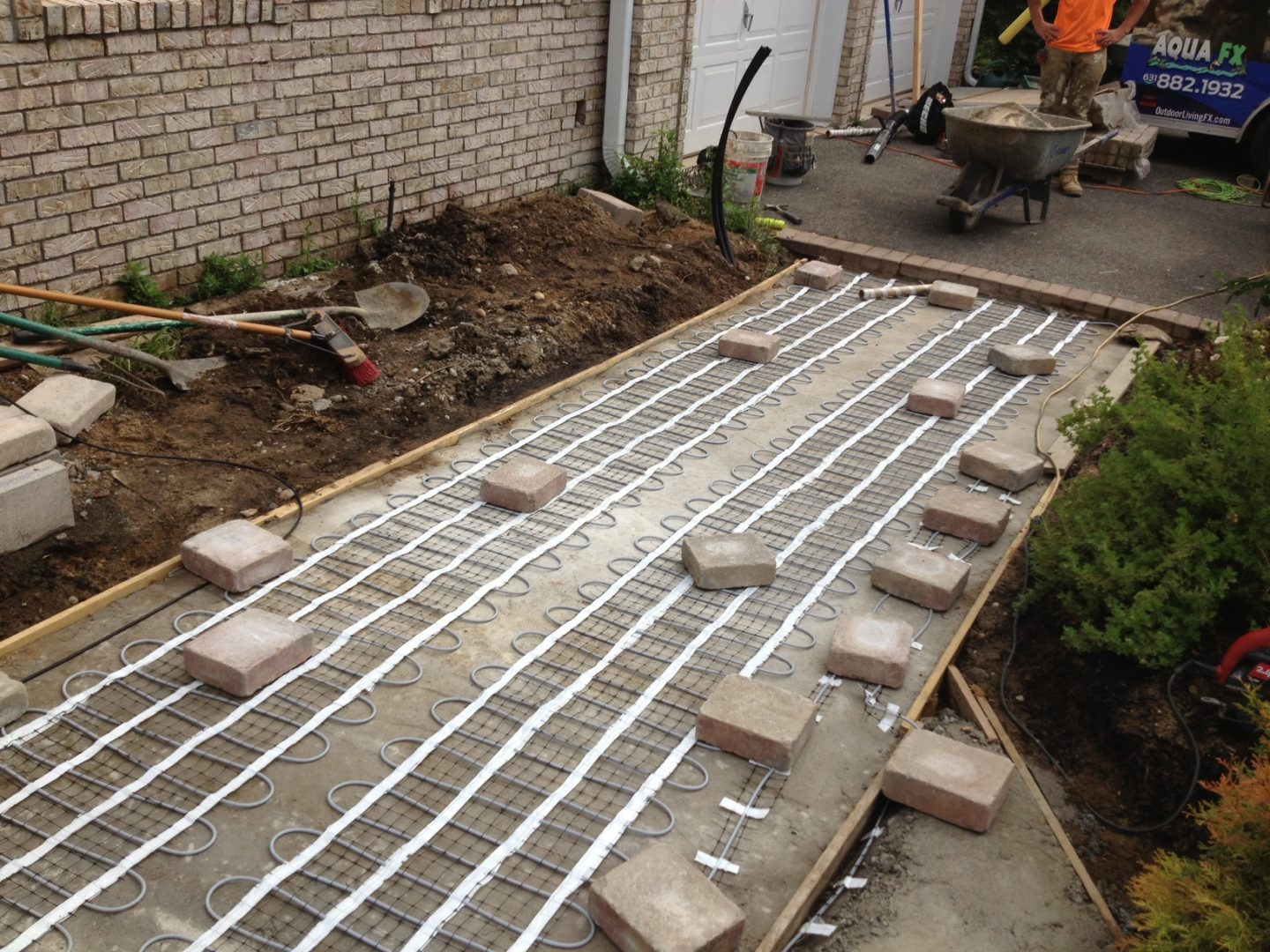
Heated walkway installation costs can vary greatly depending on several factors, and they can be anywhere from a few hundred to a few thousand dollars.
Here are a few factors that may affect the costs of heated sidewalk installation:
Labor
Labor costs for installing heated walkways vary.
Electric systems will run you about $10-$20/sqft. Electrical panel work can cost $100 an hour, though if you need a new panel, it can cost $1,300-$3,000 for a 200-amp panel, or $2,000–$4,000 for a 400-amp panel.
Labor for hydronic systems costs about $15–$30/sqft. A boiler will cost anywhere from $3,200–$9,000 for a high-efficiency boiler, while a pump would cost $500–$800.
Driveway Materials
Asphalt, concrete, and pavers are all compatible with radiant heating systems.
- Heated asphalt costs $12–$27/sqft.
- Heated concrete costs $113– $28/sqft.
- Heated pavers cost $19–$50/sqft.
Automatic vs. Manual Controller
Automatic controllers that are WiFi enabled will cost $2,000–$4,000. Standard controllers are $750–$3,600.
Running Costs of Heated Sidewalks
Heated sidewalk running costs vary depending on the cost of energy and the energy source you use.
Operating costs for electric heated walkway systems generally cost $0.10-$0.23 per kilowatt hour, which can range from about $0.50-$1.15/hr per 100sqft of heating in operating costs. Hydronic systems, on the other hand, range from around $3.55–$6 an hour.
Factors That Affect Running Costs
Similar to materials costs, there are several factors that impact the cost it takes to operate a heated sidewalk. Some of those include:
Climate
Colder climates that get a lot of snow and ice will use the system more often and for longer periods, which increases operating costs.
Walkway Size and Layout
Larger walkways and walkways with steps require larger systems, which affects the amount of energy and costs needed to operate.
Heat Loss
Heat loss in a heated walkway is inevitable and will impact operating costs. Factors like temperature, wind, and insulation play a role; well-insulated walkways retain heat better, reducing energy use. Systems with adjustable settings can also help manage heat output and lower costs.
Automation
Automatic controllers have special sensors that monitor the climate and temperature and turn the system on automatically when they detect optimal conditions for snow and ice. This can help keep costs down.
However, if the system runs longer than necessary, it will cost more. Smart controls will also allow you to control the temperature, which can help control costs.
Frequently Asked Questions About Heated Walkway Costs
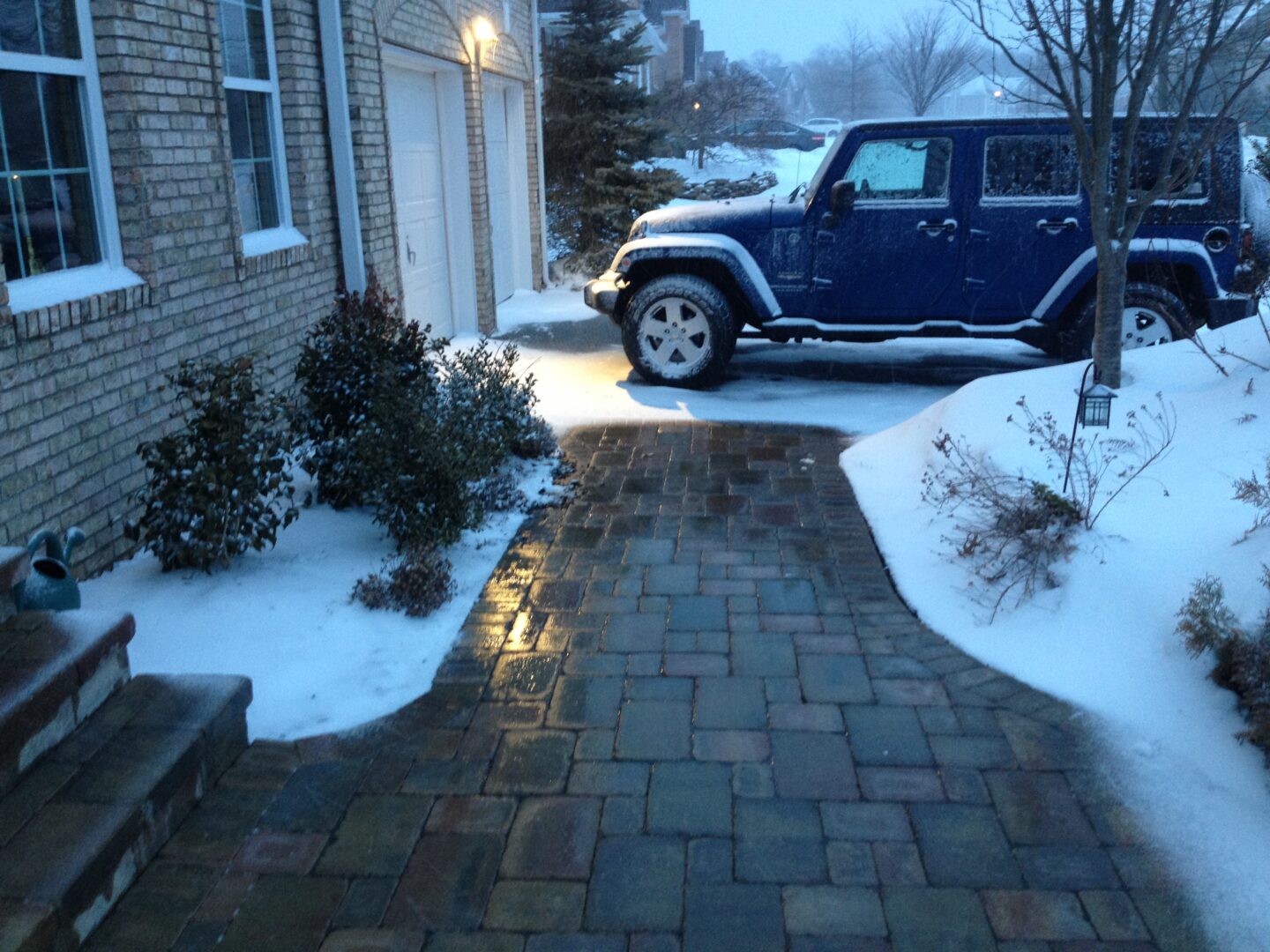
How Long Do Radiant Heating Systems Take To Heat Up?
Heat-up time varies for electric and hydronic systems. Electric systems heat up quicker and take about 30 minutes, while hydronic systems can take longer, especially in colder climates.
Do Heated Walkways Require Special Maintenance?
Electric radiant heating, if properly installed, typically requires no maintenance. However, you will want to monitor the system. If you notice heating issues or any concerns, do not hesitate to call a professional to inspect it.
Hydronic systems do require regular maintenance, specifically for the boiler, which can cost a few hundred dollars.
What Is Better: Electrical Cables or Mat Systems?
Electric mats are an excellent option for straight walkways or walkways with straight lines, because you can just lay the mat down and cover it with the surface material. Curved or oddly shaped walkways may benefit more from heating cables that allow you to shape them to fit the area better.
What Is The Best Time To Install a Heated Walkway?
It is best to install a heated walkway when it is still warm in late spring or early fall. This weather is comfortable for the workers and likely to be drier, which allows asphalt and concrete to cure.
This type of work will likely have cheaper costs because it is considered off-season.
Are The Heated Walkway Costs Worth The Investment?

If you live somewhere with a lot of snow and ice, heated walkways can save you a lot of time and be well worth the investment.
The initial heated walkway costs and installation costs are minor when compared to the amount of time and energy that you save.
You no longer have to worry about clearing the snow and ice. You won’t have to worry about potential injury, and you won’t have to worry about slick, slippery surfaces.
Interested in learning more about the snow-melting systems for your property? Contact Warmup today!
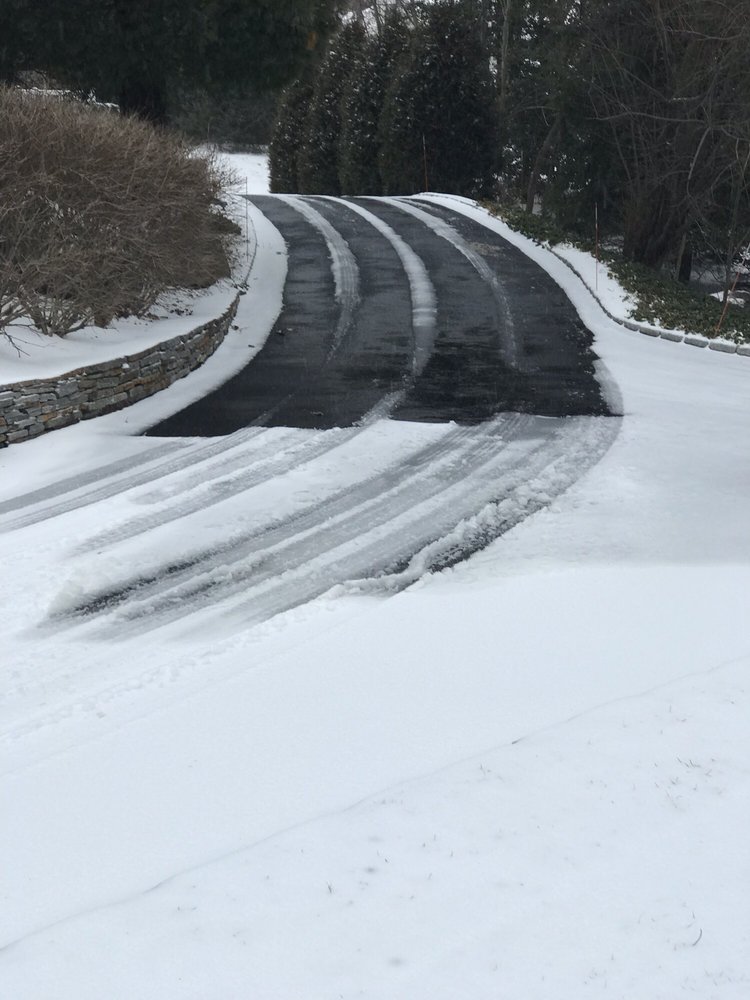

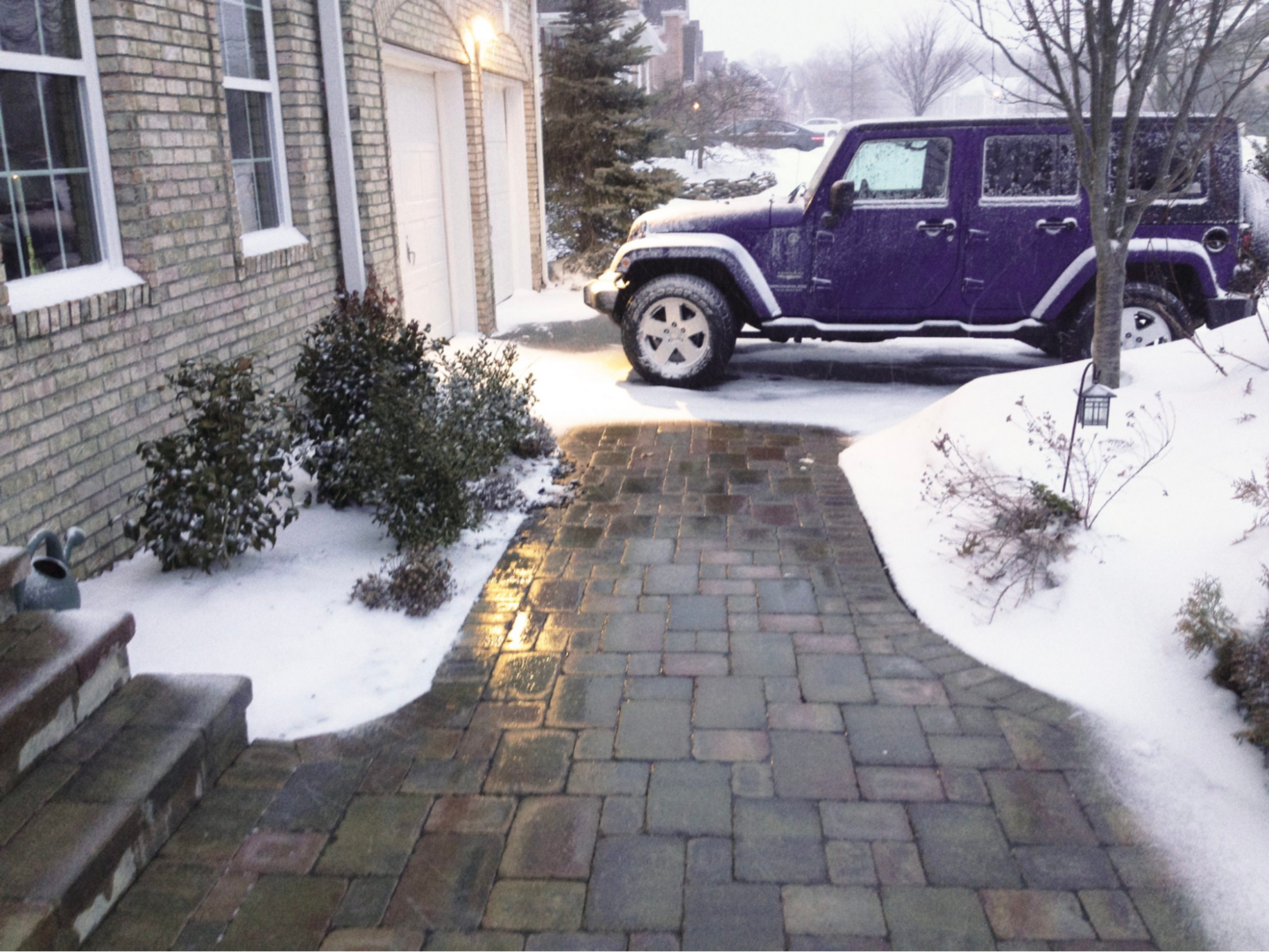

![Thumbnail [200x250]](/wp-content/uploads/Indoor-Systems-Page-Image.png)
![Thumbnail [200x250]](/wp-content/uploads/image-13.png)
![Thumbnail [200x250]](/wp-content/uploads/Projects-Image.png)